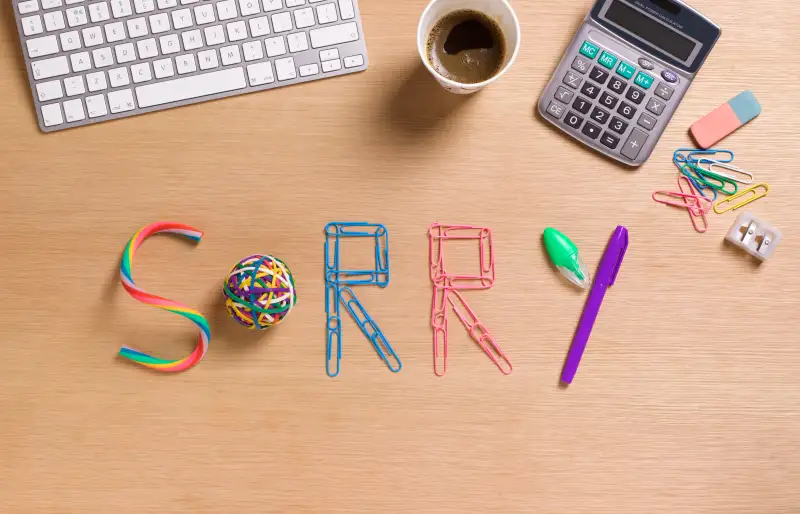At the Office, "Sorry" Seems to Be the Hardest Word

Q: Help! I screwed up at work. How can I apologize without making the situation worse?
A: A blunder on the job can tarnish your professional reputation, damage your relationships around the office, even put your job in jeopardy. But if you handle your mistake the right way, you can emerge unscathed.
There are several guiding principles behind effective apologies, says Lauren Bloom, author of Art of the Apology: How, When, and Why to Give and Accept Apologies. First, take responsibility. That means starting by saying you’re sorry. “If you lead with an explanation, that will sound more like an excuse,” says Bloom. Admitting to your mistake emphasizes your integrity, she adds.
Then propose a solution. How you do that depends on the situation. If you didn't make the deadline for an important assignment, you might tell the boss that you'll ask for his or her help prioritizing your workload in the future.
Should your actions have sparked intense emotions in the other person—for example, you made a comment that embarrasses your manager in a meeting or she overhears you complaining about her—apologize, then pause. You want to leave room to allow the other person explain what it was like from their side. The response will be painful to listen to if the person is really angry or upset, but it's important for you to hear him or her out. Then ask what you can do to make amends. The person may be more forgiving if you clarify what you said to the people who heard your offending comment or complaints. If you can do it sincerely, express appreciation for the other person, say a boss who has allowed you to work flexible hours or helped you land important assignments.
Office rank should influence your strategy. The further up the chain, the more deferential you should be. You should also be incredibly courteous to lower-ranking employees. "The people beneath you can sabotage you or make you look great," says Bloom.
If you offend a peer, apologize but don’t be overly deferential. “It can create an imbalance in office politics,” says Bloom. Keep your apology casual and say it in a way that can’t be used against you, says Bloom.
The most important thing to take away from your misstep: Learn from it rather than repeating it. “If you find yourself apologizing for the same thing again and again, just saying you’re sorry won’t cut it,” says Bloom.
Have a workplace etiquette question? Send it to careers@moneymail.com.
